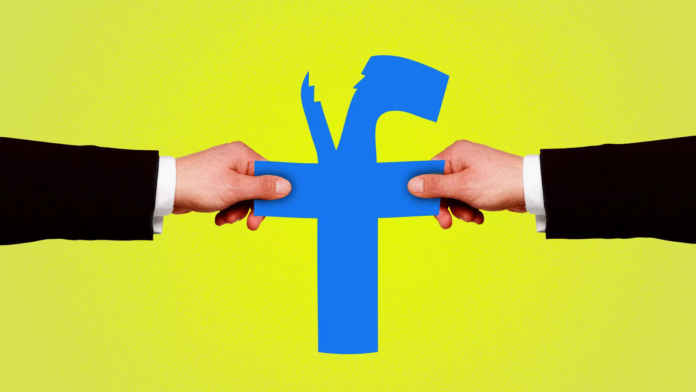By Seth Gellman
Source: Aïda Amer/Axios
On Wednesday, December 9th, the FTC announced that they were suing Facebook in the District of Columbia. In addition, 48 attorneys general are suing in conjunction, from 46 states, Guam, and the District of Columbia. The FTC alleges that Facebook has a track record of anticompetitive business practices that break antitrust laws.
The FTC says that Facebook has had a systematic strategy. This includes their acquisition of Instagram in 2012, Whatsapp in 2014, and their anti competitive conditions presented to the software developers. The FTC believes that these are all to preserve their monopoly. They argue that these practices leave few options for consumers to go to for social networking, and gets rid of the benefits of competition for advertisers.
The lawsuit seeks to force a sale or spinoff of Whatsapp and Instagram and to prevent Facebook from making purchases of over $10 million while the case is ongoing.
The FTC alleges that Facebook employed a “buy or bury strategy,” where they stomp on competitors. Ian Connor, Director of the Federal Trade Commission’s Bureau of Competition, “Facebook’s actions to entrench and maintain its monopoly deny consumers the benefits of competition. Our aim is to roll back Facebook’s anticompetitive conduct and restore competition so that innovation and free competition can thrive.”
Facebook, on the other hand, says that their acquisitions were approved by federal regulators at the time and called the lawsuit “revisionist history.” Jennifer Newstead, Facebook’s general counsel, said “Now, many years later, with seemingly no regard for settled law or the consequences to innovation and investment, the agency is saying it got it wrong and wants a do-over.”
Facebook also defended themselves, saying that they face plenty of competition from messaging service Snapchat and video-sharing service TikTok.
In the past, the FTC has taken a more laissez-faire approach to Big Tech. Amazon, Apple, Google, and Facebook have notably benefited from this. The FTC and Justice Department is reviewing all of these companies in a review.
“There was a long period where antitrust enforcers and regulators were saying, ‘We need to stay hands off Big Tech,’ and it’s really becoming clear with cases like this that that time is over,” according to Charlotte Slaiman, a former FTC lawyer who leads competition policy at advocacy group Public Knowledge.
Facebook has already faced criticism from the FTC in recent years. The tech giant agreed to pay $5 billion to the FTC in exchange for failing to protect data from being shared with third parties.
As Facebook has become more powerful, it has been scrutinized more for its business practices and failure to protect private data from users. The most extreme potential outcome from this lawsuit could be Facebook must sell Instagram and Whatsapp, or could face new restrictions on how it operates. Apple and Google are watching this lawsuit carefully because this could set a precedent for the future of Big Tech, a future that the companies may not like.

